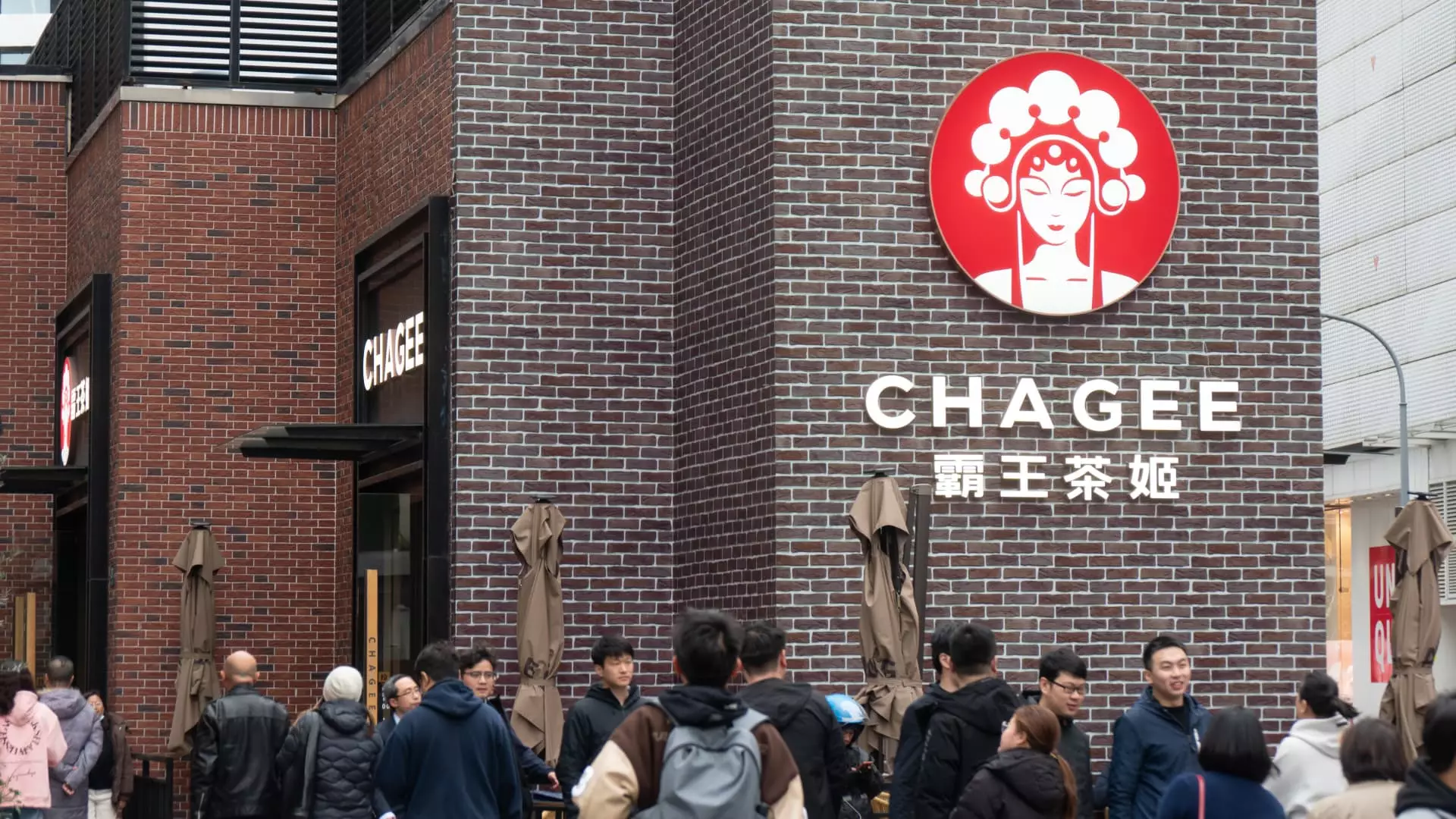Chagee, a burgeoning tea chain from China, is looking to take a significant leap into the lucrative U.S. market with its initial public offering (IPO). But the brewing excitement comes with a hefty side of caution. While bubble tea has carved a niche amongst the younger demographic in urban areas, replicating this craze in the U.S. amidst an increasingly sensitive geopolitical climate could present unforeseen challenges. Investors should remember that trends can turn just as fast as they arise, and with older brands like Starbucks having such a strong foothold, Chagee might be stepping into a veritable minefield.
What Makes Chagee Stand Out?
Founded in 2017, Chagee has expanded impressively with over 6,400 locations across Asia, largely concentrated in China. The company aims to modernize tea consumption, drawing inspiration from successful coffee giants. But what sets it apart? Chagee’s branding heavily emphasizes innovation and freshness — boasting aspirations of serving 15 billion cups of tea annually. Nonetheless, these ambitions raise the critical question: Is growth merely a numbers game without a solid plan to support it? The answer lies in the company’s ability to adapt, proliferate, and resonate with a culturally diverse audience.
The Risk of Negative Perception
Investors have historically viewed Chinese companies with suspicion, especially in light of various scandals, including that of Luckin Coffee. Once seen as a solid investment, Luckin’s meteoric rise was abruptly followed by its fall from grace due to fraudulent financial practices. As a result, the opportunity for Chagee to succeed in the U.S. hinges on more than mere popularity; it must battle existing skepticism regarding Chinese firms. U.S. lawmakers and regulatory bodies have created a landscape fraught with uncertainty, adding another layer of risk for investors.
Geopolitical Factors in Play
Relations between Washington and Beijing have grown increasingly wary. This frostiness casts a shadow over Chagee’s ambitions of tapping into American capital. The number of Chinese businesses with U.S. listings is already dwindling, and potential investors might be reluctant to jump ship due to fears that future legislation could target their investments. Every cup of Chagee’s tea served may come with the bitter aftertaste of political ramifications — a detail that should not be overlooked by investors attempting to gauge risk versus reward.
Can Chagee Overcome Its Predecessors’ Mistakes?
The legacy of companies like Luckin Coffee heavily influences perceptions of new entrants like Chagee. If the latter wants to break this cycle of distrust, it needs to prioritize transparency and accountability. Without a strong commitment to ethical practices and rigorous reporting, Chagee risks being labeled as just another speculative option for investors, lacking the substance to support its ambitious goals. The taste of success may remain elusive unless the company takes significant strides to establish its credibility.
While the atmosphere around Chagee’s anticipated IPO is tinged with optimism, one must tread carefully through the challenges that lay ahead. As with any financial investment, especially in a climate where geopolitical concerns dominate, the stakes are incredibly high. Without robust strategies and the ability to separate itself from the shadow of past controversies, the prospects for Chagee may well boil down to one question: Is the potential for growth worth the risk?

